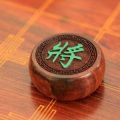Introduction to Feng Shui and the Luo Pan Compass
Feng Shui, an ancient Chinese practice, is centred on harmonising individuals with their surrounding environment by carefully balancing energy, or “Qi.” Its principles are based on understanding how spatial arrangement and orientation can influence well-being, prosperity, and overall quality of life. At the heart of professional Feng Shui analysis lies the Luo Pan compass—a precise instrument designed to determine directional energies, which play a crucial role in accurate assessments. While Feng Shui originated in East Asia, its concepts have steadily gained popularity in the UK, with more people seeking to integrate its philosophy into British homes and workplaces. This growing interest highlights a desire among UK residents to adopt holistic approaches that consider both physical space and subtle environmental factors. As such, understanding how to correctly use traditional tools like the Luo Pan compass within the context of the Northern Hemisphere becomes increasingly relevant for practitioners and enthusiasts alike.
2. Understanding the Differences in Northern Hemisphere Usage
When using a Feng Shui compass, or luopan, in the Northern Hemisphere—particularly in the UK—its crucial to distinguish between magnetic north and true north. These two reference points can influence compass readings, which in turn affect the accuracy of Feng Shui assessments.
Magnetic North vs. True North
True north, also known as geographic north, refers to the fixed point at the North Pole, where all longitudinal lines converge. Magnetic north, on the other hand, is the direction a compass needle points, aligning with the Earths magnetic field. The position of magnetic north shifts over time due to changes in the planet’s core.
How Compass Readings Differ in the UK
The angle between true north and magnetic north is known as magnetic declination. In the UK, this declination varies by region and changes gradually each year. Unlike some regions where declination might be negligible, in Britain it can have a noticeable impact on compass readings. For instance, if you are conducting a Feng Shui assessment in London, you must account for a magnetic declination of approximately -1 degree (as of 2024), meaning magnetic north is slightly west of true north.
Comparison Table: Compass Readings
| Location | Magnetic Declination (2024) | Required Adjustment |
|---|---|---|
| London, UK | -1° (West) | Add 1° to compass reading for true north alignment |
| New York, USA | -12° (West) | Add 12° to compass reading for true north alignment |
| Sydney, Australia | +12° (East) | Subtract 12° from compass reading for true north alignment |
This difference matters because traditional Feng Shui formulas are based on true geographic directions. Failing to adjust for local magnetic variation can lead to incorrect orientation and thus flawed analysis.
![]()
3. Preparing to Take Accurate Measurements
When using a Feng Shui compass, or luopan, in the UK, it is essential to ensure that your measurements are as precise as possible to achieve reliable results. There are several key considerations that you should keep in mind before you begin the orientation process.
Choosing the Optimal Location
Selecting the right spot to take readings is critical. In Britain, where traditional architecture and modern materials often intermingle, try to position yourself outdoors or near the entrance of your property. This minimises any structural interference from reinforced concrete or steel found in many British homes. Additionally, avoid standing too close to vehicles, power lines, or large metal objects, as these can skew the magnetic needle and compromise accuracy.
Avoiding Magnetic Interference
The UK is dotted with sources of electromagnetic interference—think underground cables, Wi-Fi routers, and even nearby electronic devices. Before taking measurements, turn off or move away from mobile phones, smartwatches, and other electronics. It’s also wise to check for hidden magnets or metal objects in your clothing or on your person, such as belt buckles or jewellery. Even a set of keys in your pocket can subtly affect the compass reading.
Essential Tools for Accurate Measurement
Alongside your Feng Shui compass, bring a notepad and pen to record your findings immediately. A spirit level may also be beneficial; ensuring that your luopan sits perfectly flat is vital for reliable measurements. For British weather conditions—often windy or rainy—a waterproof clipboard or protective cover can prevent your notes from being spoiled. Lastly, patience and steady hands are necessary; allow the compass needle ample time to settle before taking a reading.
Summary
In summary, preparing for accurate measurement with a Feng Shui compass in Britain involves careful attention to location, awareness of potential magnetic interferences unique to British environments, and assembling a few essential tools. By following these guidelines, you lay a solid foundation for all subsequent steps in aligning your space according to Feng Shui principles.
4. Step-by-Step Guide to Using a Feng Shui Compass
To ensure precise readings with a Luo Pan (Feng Shui compass) in the UK, it is essential to follow a systematic approach that considers both local geography and traditional Chinese geomantic principles. The following detailed steps will guide you through the process of orienting and reading a Feng Shui compass accurately in the Northern Hemisphere, specifically tailored for UK environments.
Step 1: Selecting an Appropriate Location
Choose a flat, open space free from metallic objects, electronic devices, and reinforced concrete structures, as these can interfere with the compass needle. In the UK, avoid proximity to radiators, steel beams, or underground cables commonly found in older buildings.
Step 2: Level the Luo Pan
Place the Luo Pan on a stable, level surface such as a wooden table or directly on the ground. Use the built-in spirit level if available. Ensuring the compass is perfectly horizontal is vital for accuracy.
Step 3: Account for Magnetic Declination
The UK sits west of true north due to magnetic declination. Adjust your compass reading according to the latest Ordnance Survey data for your locality. For reference:
| City | Approximate Magnetic Declination (2024) |
|---|---|
| London | +1.5° East |
| Manchester | +1.2° East |
| Edinburgh | +0.8° East |
| Belfast | +1.0° East |
Add this value to your Luo Pan’s magnetic bearing to align with true North.
Step 4: Align the Compass Needle
Gently rotate the Luo Pan until the red end of the needle points directly to North (adjusted for declination). Avoid sudden movements which could disturb the sensitive needle mechanism.
Step 5: Take Your Readings
With the compass stabilised, read the ring markers around the Luo Pan’s perimeter. For British homes, pay particular attention to orientation relative to main entrances and windows, as these affect energy flow per Feng Shui principles.
Troubleshooting Common Issues in UK Homes
| Issue | Potential Cause | Suggested Solution |
|---|---|---|
| Erratic Needle Movements | Nearby metal/EM sources (e.g., radiators) | Relocate further away from interference. |
| Persistent Off-North Reading | No adjustment for local declination | Add/subtract correct declination per city. |
| Difficult Level Surface | Uneven flooring in older properties | Use a portable levelling tool or spirit level. |
A Final Note on Documentation
Record each measurement, noting date, time, and environmental conditions. This documentation ensures consistency and allows for meaningful comparison over time—an analytical approach favoured by both Feng Shui practitioners and methodical British sensibilities.
5. Interpreting and Applying Your Compass Readings
Once you have obtained accurate compass readings, the next crucial step is to interpret and apply this information effectively within a British context. Feng Shui principles are rooted in Chinese culture, but with thoughtful adaptation, they can be seamlessly integrated into British homes and offices for enhanced harmony and energy flow.
Understanding Directional Influences
Each direction on the Feng Shui compass corresponds to specific elements, colours, and life areas. For example, North often relates to career and water elements, while South aligns with recognition and fire elements. When translating these principles to a British setting, consider the typical layout of UK properties—such as terraces or semi-detached houses—and how rooms align with cardinal points. This ensures that your adjustments respect both the architectural realities and cultural norms of British living spaces.
Culturally Relevant Adjustments
British interiors may feature fireplaces, bay windows, or unique room shapes uncommon in traditional Chinese homes. When applying your compass findings, adapt suggestions such as colour schemes or material choices to suit local preferences. For instance, introducing blue accents in a north-facing office could be achieved through classic British décor items like patterned cushions or ceramic vases rather than bold paintwork.
Practical Implementation Tips
Start by mapping out your home or workspace based on your compass readings, marking each sector accordingly. Implement changes gradually: reposition furniture to promote clear pathways, introduce plants for natural vitality, and use soft furnishings to subtly enhance directional energies. For shared spaces such as open-plan offices popular in the UK, employ discreet adjustments—like desk placement or communal artwork—to influence group dynamics positively without overwhelming the aesthetic.
Ultimately, successful application of Feng Shui compass readings in the Northern Hemisphere relies on balancing traditional guidance with an appreciation for British tastes and lifestyles. By making informed adaptations and respecting local design conventions, you can create environments that are both culturally resonant and energetically supportive.
6. Common Pitfalls and Local Considerations
When applying Feng Shui compass techniques in the UK, it is crucial to recognise both common pitfalls and unique local challenges. One frequent mistake is neglecting the influence of modern British building materials, such as reinforced concrete, steel frameworks, and double glazing. These materials can distort magnetic readings, leading to inaccurate orientation of the Luo Pan or traditional Feng Shui compass. To mitigate this, practitioners should always take multiple readings from different spots, preferably away from large metal objects or structural reinforcements.
Another typical error is overlooking the impact of British architectural styles. Many older homes in the UK feature irregular layouts, extensions, and modifications that may not align with true cardinal directions. For example, Victorian terraces and Edwardian semis often have non-standard orientations due to street planning or historical land use patterns. This makes it essential to verify the actual facing direction of a property rather than relying on assumptions based on the façade or main entrance location.
Additionally, many UK homes utilise thick masonry walls and are located in densely built neighbourhoods. These factors can further interfere with accurate compass readings by causing subtle magnetic disturbances or blocking reference points needed for celestial alignment. Practitioners should be mindful of these environmental influences and consider conducting measurements outdoors or in open spaces when possible.
The British climate also poses its own set of challenges. Overcast skies and frequent rain can make it difficult to use solar positioning as a cross-reference for compass accuracy. In such cases, patience and careful observation are required—waiting for clearer weather or using digital tools alongside traditional methods can help compensate for these limitations.
Finally, cultural context matters: be aware that some clients may have reservations about traditional Feng Shui practices due to differing beliefs or unfamiliarity with Eastern concepts. Explaining the rationale behind your methods in clear, relatable terms can foster better understanding and acceptance among UK residents.
By anticipating these pitfalls and adapting your approach to the unique conditions found in Britain, you can ensure that your Feng Shui compass readings remain precise and meaningful within a local context.


